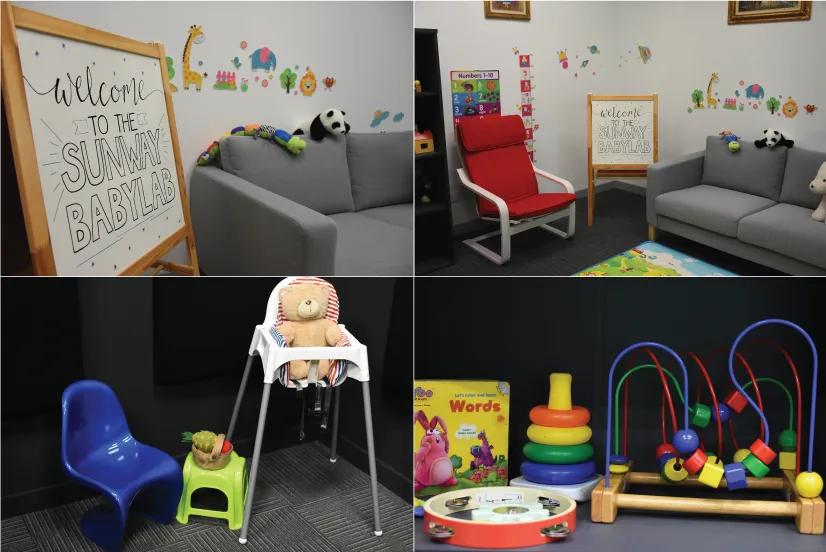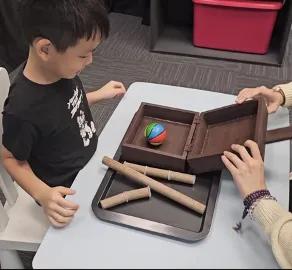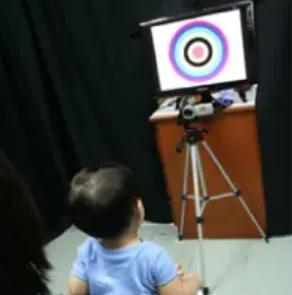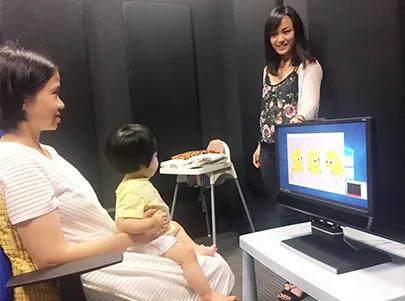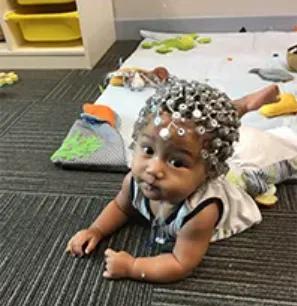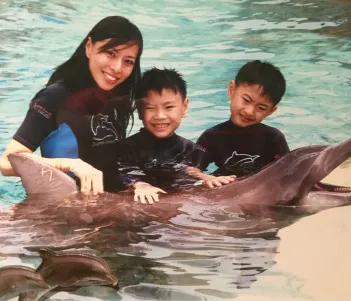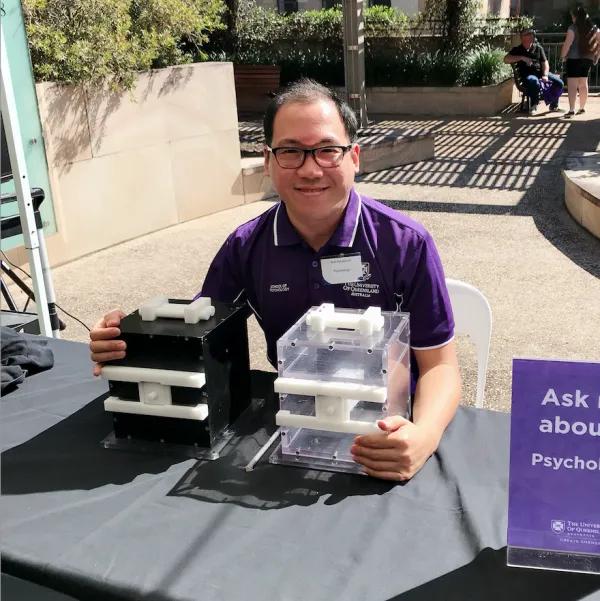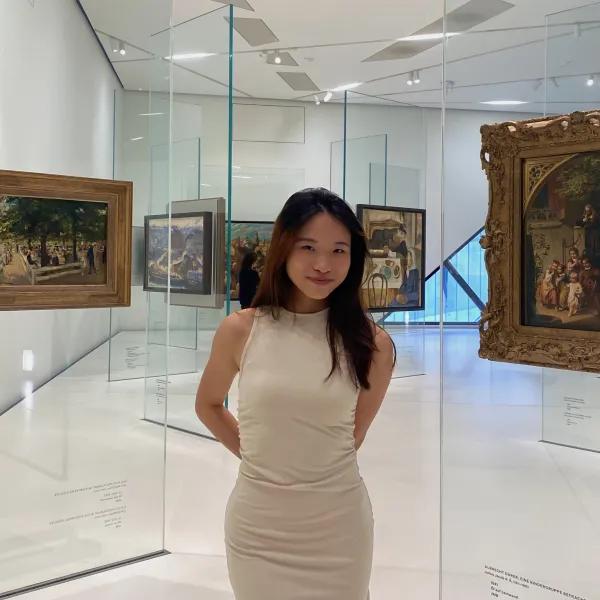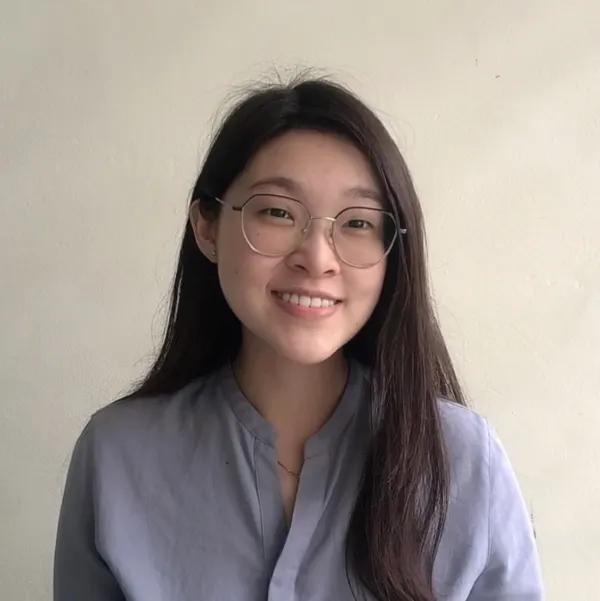Sunway Baby and Child Lab

What Do We Do?
Welcome to the Sunway Baby and Child Lab! We are passionate about understanding how babies grow, learn, and develop. Through our studies, we explore various aspects of child development, such as cognitive skills (e.g., speech and language development, face perception), emotions, and social interactions (e.g., imitation behaviours).
We are always inviting children from all ages (0 - 12 years old) to participate in our studies. Register your child now and join our journey to better knowledge! Our team will contact you if your child is eligible for any of our studies.
How Do We Study Children?
Information for parents
What to Expect?
Our research assistants will contact you to screen your child’s eligibility for our studies. If your child is eligible, you will be invited to the lab and scheduled at a time that works best for you. Sessions are generally done on Mondays to Saturdays between 8:30am to 5:30pm. One study would last 20-30 minutes, but we would recommend you to allocate one hour for the session in order for us to explain the study to you and answer your questions before you sign a consent form as well as getting your child comfortable with us before beginning the session. Please refer to the image below for better understanding.

Eligibility: Who is eligible?
You and your child are eligible if:
- You are the parent or caregiver of a child.
- The pregnancy, birth, and baby’s development is normal.
- Your child is between 0 - 12 years old.
Risks: Are there any risks involved?
The risks in these studies are minimal. All studies went through a thorough procedure of ethical considerations and have received ethical approvals from the university ethics research committee.
Confidentiality and Data
All sessions will be recorded for the purpose of analysis by our research staff. All videos and personal data will be kept strictly confidential in our high security password-protected database. All results will be compiled and no individual results will be available.
Reimbursement
To reimburse you for your time and effort, you will receive the following:
- A travel allowance on each visit.
- A small appreciation gift.
- A child degree on each visit
- 1st visit: Bachelor’s degree
- 2nd visit: Master’s degree
- 3rd visit: PhD Degree
Our Past Research
Check out our social media or reach out to us to find out more about our ongoing research!
Below are some of our previous research:
Face Perception Study
How do babies perceive faces that they are familiar and unfamiliar with? When do they become experts in recognising faces? Through a series of studies taking place at Lancaster University (United Kingdom) and Sunway University (Malaysia), we are hoping to answer questions like these. Dr. Diana Tham and Professor Gavin Bremner, Lancaster University (UK) and Dr. Woo Pei Jun, Sunway University (MY) conducted a cross-cultural comparison on face perception ability in infants living in a single-race country (e.g., the UK) and a multi-race country (e.g., Malaysia).
Emotional development
Infants as young as 3 months are able to recognise specific emotional expressions when the expression is displayed on the face, voice or body posture. To understand how these processes develop, we presented infants with a series of photographs, or audio playbacks of various emotions and record their brain responses and eye gaze. This is a joint research project between Sunway University, Prof. Ted Ruffman from University of Otago (New Zealand), Assoc Prof. Rozainee Khairudin (UKM), and Assoc Prof. Alex Schaefer from Monash University Malaysia.
Empathic development
Toddlers around 18 months olds may feel distressed themselves when observing another in distress. But when do infants develop this ability in recognising distress in another, and what are their responses to the distress? Here, we investigate these questions with behavioural observations (e.g. role plays), and physiological (brain responses, eye gaze, salivary cortisol, heart rate). This is a joint research project between Dr. Yong from Sunway University and Dr. Elena Geangu from Lancaster University (UK).
Imitation Behaviours
Even though young children may not be able to do complex tasks yet, they're surprisingly good at watching what others do and copying them. To understand how children imitate, we investigated whether children imitate normative or instrumental tools to complete specific tasks. This is a joint research project between Sunway University and Dr. Frankie Fong from Max Planck Institute of Evolutionary Anthropology (Germany). This is one of the many studies that we conduct to understand children’s imitative behaviours.
Word Learning Study
Together with Professor Denis Burnham from MARCS Baby Lab at the University of Western Sydney, Australia, Dr. Woo Pei Jun from Sunway University studied how 17-month-old infants’ learn pairs of native (Malay Mandarin) and pairs non-native word-like sounds based on tonal (pitch) differences, or phone (consonant or vowel differences). This is one of the many series of studies that we conduct to understand how babies learn languages from their environment.
Infant Tone Perception (Language Study)
Babies may not be able to speak yet, but from the early months of life, infants are learning a lot about speech and language. Each language uses a unique set of speech sounds. Scientists now know that at birth, babies have the ability to distinguish all of these speech sounds, but that ability decreases rapidly if they don’t have regular exposure to those sounds. Dr. Woo Pei Jun, Dr. Karen Mattock and Elaine Yong investigated how infants come to recognise and distinguish between speech sounds in Mandarin, as well as how development may differ for babies growing up hearing more than one language. The focus of the research is on the perception of Mandarin speech sounds, especially tones. This study is a collaborative project between researchers from Sunway University (MY) and University of Western Sydney (Australia).
Our Team
Lab Director and Researcher
Researcher
Research Assistant
Graduate Student
Sunway Baby and Child Lab Location
Sunway Baby and Child Lab is located on Level 3 (Human Developmental and Human Performance Lab) of the Sunway University New Building.
The address and GPS coordinates are:
Sunway University
No. 5, Jalan Universiti, Bandar Sunway, 47500 Selangor.
GPS Coordinates: 3.0681° N, 101.6041° E
Parking
Paid parking is available at the campus basement car park on a first-come-first-serve basis. We will reimburse your parking fee.
Alternative parking spaces are available at Sunway Pyramid Entry C, Blue Zone. Enjoy a scenic 6-minute walk to Sunway campus via the Elevated Canopy Walk which is located near the main entrance of Sunway Lagoon or at BRT Monash Station, opposite Monash University Malaysia. It is a 5-minute walk via the elevated canopy walk from the station to the University. The latter option is baby-stroller friendly as there are no steps between the two stops. (Please see the map below for directions)
Thank you and see you at Sunway University!



